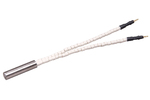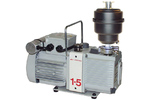Home
- ▶
- Heaters/Source
- ▶
- Agilent Heaters and SensorsMass Spectrometry, Scientific Supplies & ManufacturingScientific Instrument Services 5973 Source Heater Tamper Resistant Allen Wrench 5973/5975 Quad Sensor 5985 Source Heater Assembly Agilent Interface Heater Assembly 5971 Interface Heater

- ▶
- VacuumPumps Oils/Greases Gauge & Tubes Hose & Accessories Filters - Oil/Charcoal Foreline Traps Gaskets & Material Fittings O-Rings Pump Parts (Precision Plus) Quality Monitor System Distillation Control Acoustic Enclosures For Rotary Vane Pumps Other Vacuum Accessories Digital Vacuum pressure regulator (VPC) Catalog Page F1

- ▶
- Koby Vacuum Pump Exhaust Filters/Purifiers - Discontinued (This Page)
DISCONTINUED: Koby exhaust filters/purifiers have been discontinued.
Alternative SIS brand SIS brand charcoal and oil mist eliminators are available.

